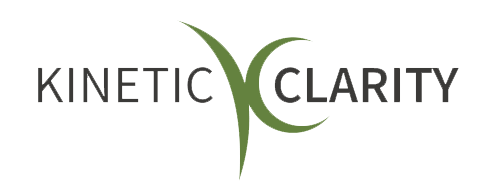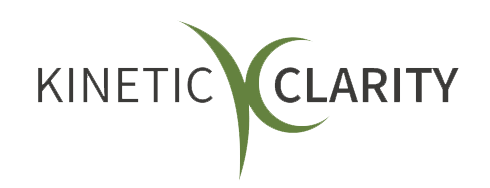What Are The 5 Signs of a Resilient Workplace Culture?
Your workplace culture plays a pivotal role in the success and longevity of a company.

Your workplace culture plays a pivotal role in the success and longevity of a company. A resilient workplace culture not only ensures that an organization can weather challenges but also means that its employees feel supported, valued, and empowered.
Resilience refers to the ability to recover quickly from difficulties or the ability to bounce back. When we apply this concept to a workplace, it pertains to the collective capacity of the organization—and its individuals—to adapt to adversities, navigate challenges, and continue to thrive without compromising its core values or objectives.
Here are five tell-tale signs of a resilient workplace culture.
1. Open Communication Channels
Open communication is central to a resilient workplace culture, acting as the conduit for free-flowing information across all levels. It's more than just top-down directives; it’s about creating an atmosphere where every individual feels informed and valued. This transparency fosters trust. When they know they're in the loop and their voices matter, employees are more likely to connect deeply with the company's mission.
Such a culture also bolsters engagement. Informed employees identify more with their roles, increasing job satisfaction and productivity. Plus, when challenges arise, open communication ensures they're identified and tackled collaboratively. The resultant pooling of diverse perspectives often leads to richer, more effective solutions.
Additionally, a communication-rich environment becomes a hotbed for innovation. When ideas are welcomed from every corner, the organization benefits from a tapestry of insights, pushing the boundaries of what’s possible.
Open communication isn't an optional luxury; it's a cornerstone for organizations aiming for adaptability in an ever-evolving work landscape. Prioritizing this ensures both individual fulfillment and collective growth.
2. Continuous Learning Opportunities
Continuous learning opportunities are a hallmark of resilient workplace cultures. Such organizations recognize that in a world marked by rapid technological advancements and shifting market dynamics, staying stagnant isn't an option. These workplaces prioritize skill development and knowledge enhancement by investing in training, workshops, and seminars.
But it's not just about staying updated with the latest trends. Continuous learning fosters a mindset where mistakes aren't failures but learning opportunities. This shift in perspective breeds resilience, as employees understand that setbacks are part and parcel of growth. When teams are encouraged to acquire new skills, they become more adaptable, ensuring they—and the company—remain relevant and competitive.
Continuous learning is more than just professional development; it's the cultivation of a growth mindset. Companies that champion learning position themselves for long-term success, navigating challenges with agility and foresight.
3. A Strong Sense of Purpose and Values
A strong sense of purpose and values isn't just a mission statement on a company's wall; it's the guiding force that shapes actions, decisions, and motivations within resilient workplace cultures. Such companies understand that when their organizational purpose aligns with the personal values of their employees, a more profound connection is forged. This alignment creates a powerful bond, where employees aren't just working for a paycheck but for a cause they believe in.
During challenging times, this sense of purpose becomes the anchor. It ensures teams remain motivated and driven by the bigger picture rather than getting bogged down by temporary setbacks. Moreover, when employees genuinely resonate with what they're doing, their commitment to their roles and, by extension, the organization intensifies.
A well-defined purpose and value system act as the organization's North Star. They provide direction, foster unity, and instill a sense of pride and belonging. In a resilient workplace culture, these elements are not afterthoughts but central tenets guiding their journey toward success.
4. Emphasis on Employee Well-being
In resilient workplaces, mental and emotional support isn't a mere perk—it's ingrained in the fabric of the organization. By acknowledging that an employee's well-being directly correlates with their productivity and overall morale, these companies actively create frameworks and policies that prioritize holistic health.
Such a proactive stance goes beyond traditional benefits. It cultivates an environment where individuals know that their emotional well-being matters just as much as their work output. This acknowledgment often leads to a workforce that is more engaged and better equipped to handle stress and challenges.
Moreover, this supportive infrastructure acts as a buffer in times of adversity or change. Employees navigate challenges with the assurance that they are not alone and that their organization is equipped to provide the necessary resources and understanding.
In short, placing importance on mental and emotional support is more than just a nod to modern HR practices. It's a pivotal strategy for resilient companies aiming to foster a deeply connected, motivated, and agile workforce.
5. Encouragement of Innovation
Innovation isn't just about breakthrough products or technologies; it's an ethos that resilient workplaces actively foster. Organizations that genuinely champion innovation recognize that it’s about cultivating an environment where new ideas are welcomed, risks are embraced, and creative problem-solving is celebrated.
Such a focus on innovation often stems from the understanding that to remain competitive and relevant in a rapidly evolving landscape; organizations cannot rest on their laurels. They need to continuously reinvent, reevaluate, and reimagine. This is facilitated when employees at all levels feel empowered to think outside the box, challenge the status quo, and pitch novel solutions.
Moreover, when innovation is encouraged, employees often feel a stronger sense of ownership and engagement in their roles. They know their perspectives matter and have a stake in the organization's future. This not only boosts morale but also drives a forward-thinking culture where progress and growth are at the forefront.
Wrapping It Up
A resilient workplace culture isn't built overnight. It’s a culmination of various practices, values, and attitudes that emphasize the collective over the individual. By recognizing and nurturing these signs, organizations pave the way for not just survival but long-term success and growth.
Contact us to talk about your executive coaching needs.
We will get back to you as soon as possible.
Please try again later.
Kinetic Clarity | All Rights Reserved |
Created by Olive + Ash.
Managed by Olive Street Design.












